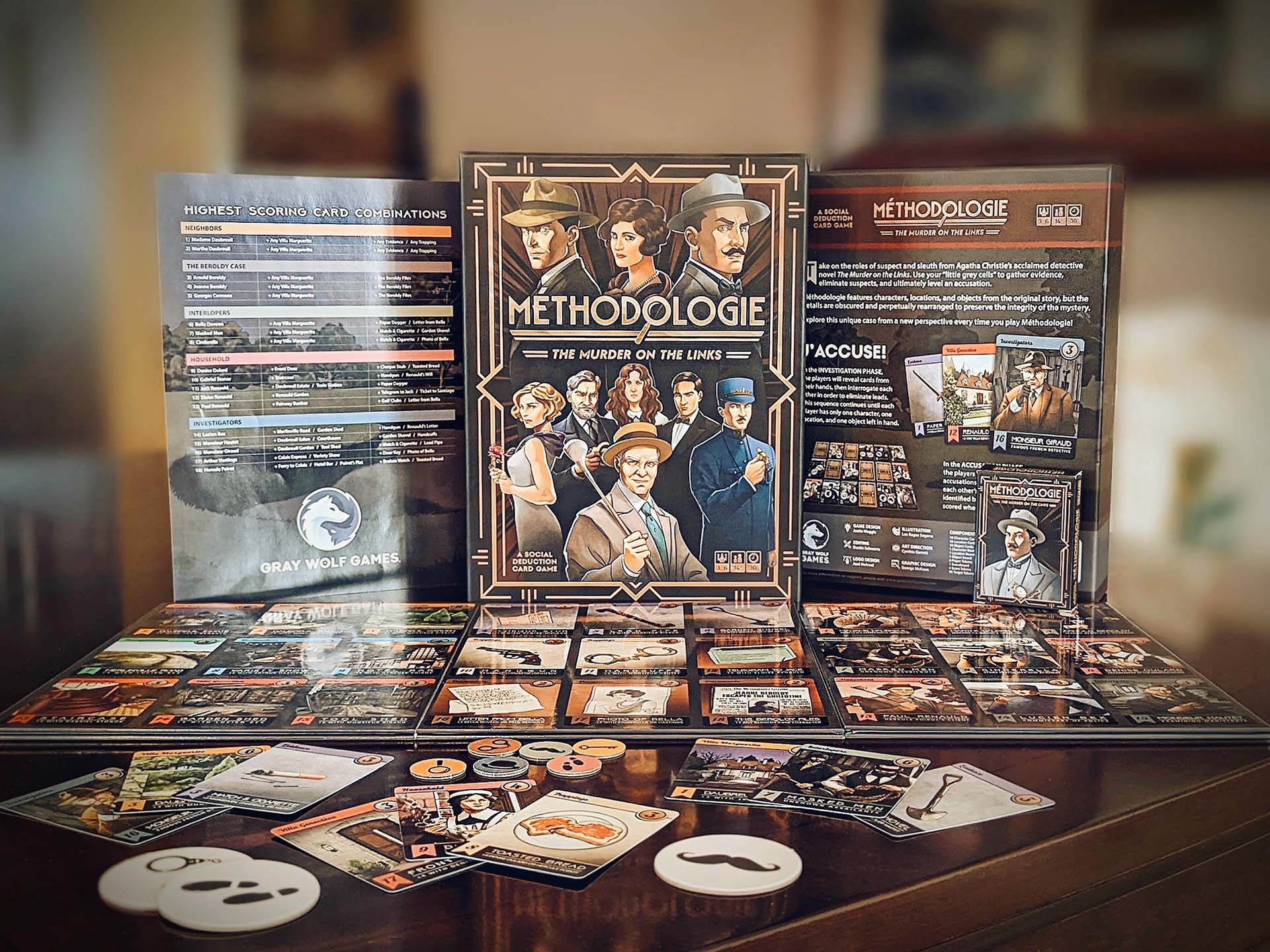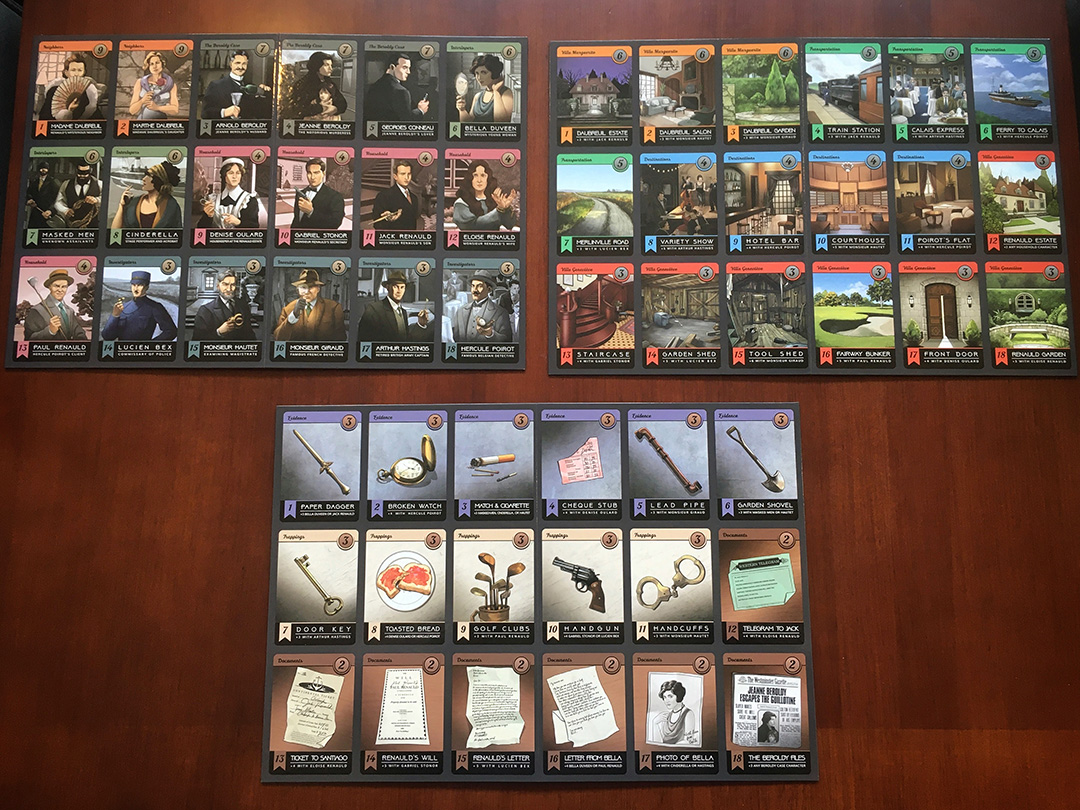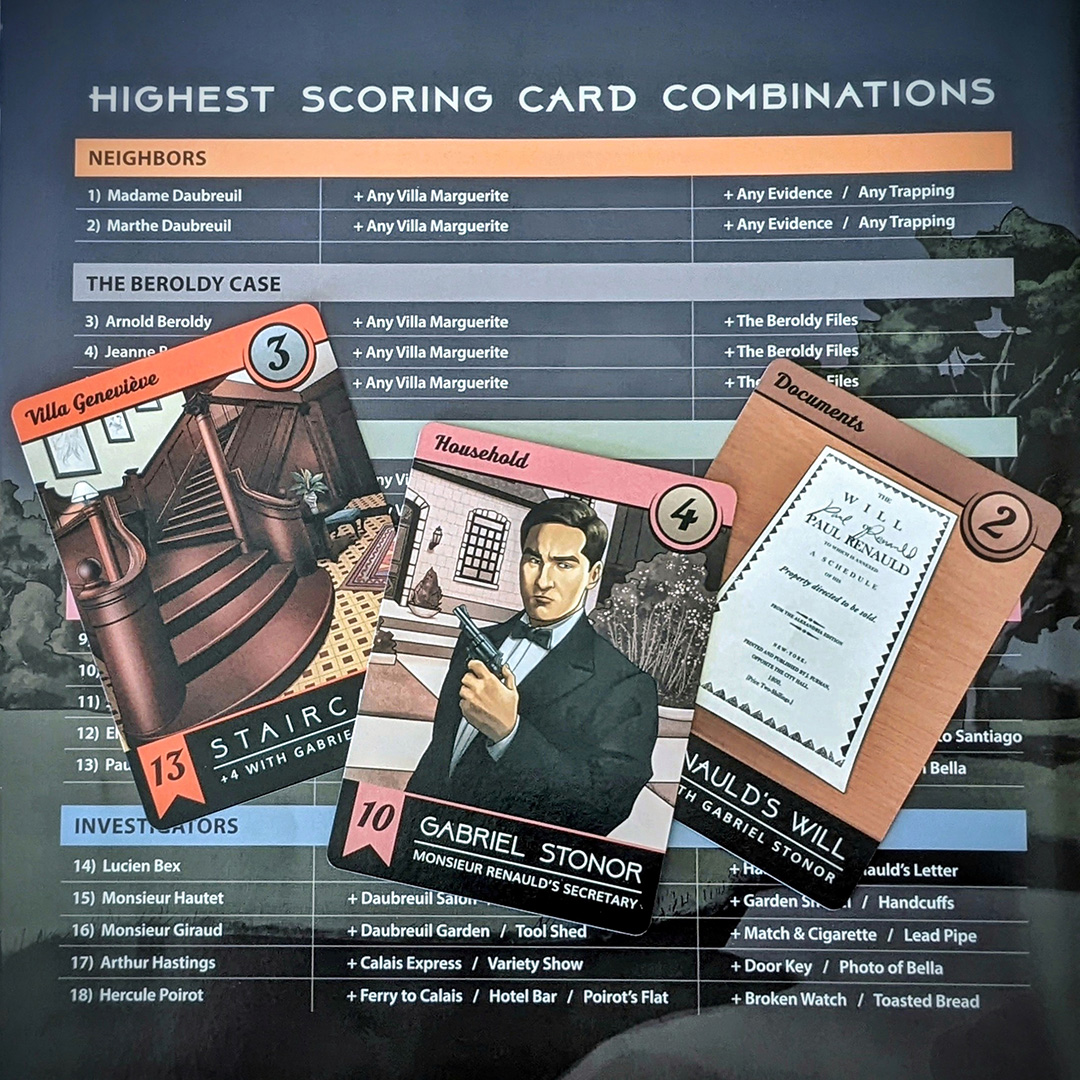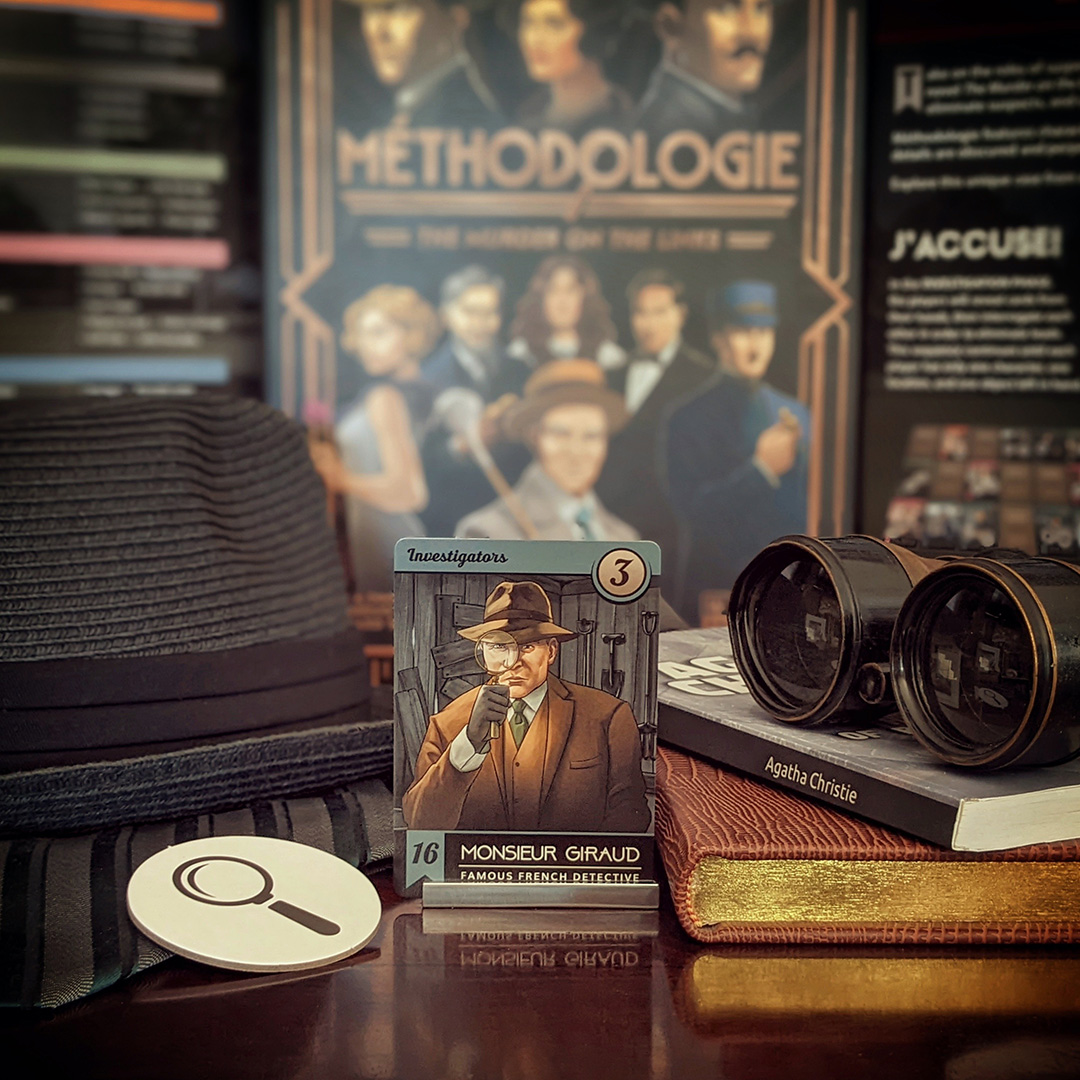The Deepening Mystery of Méthodologie


Ethan Arlt
Contributing Writer
Everyone Has Something to Hide

- During the investigation phase, players have the ability to place down cards from their hand, which will eventually be eliminated; but the question of which cards to place down is multi-layered. Because the rank value on cards dictates who gets to be the interrogator, the player has to take this into consideration.
- The cards have their own point value, as well as bonus point values with other cards in hand, so the player might be more inclined to keep higher-point cards.
- The player also must consider which cards they want to get rid of from their hand – which ones do other players know that they have that they should get rid of before the accusation phase? These questions and priorities are often at odds with one another, leading to tense and difficult decisions of what to play.

Maintain Your Composure
All of this gives players plenty to think about, but the fact that the sets have different numbers of cards within them as well as the fact that certain cards have bonuses for creating combos with other cards creates even more interesting wrinkles.
Mounting Tension

Savvy Suspects and Sleuths
In essence, because of how much variety is within the sets of cards, as well as the bonus points, the strategy of Méthodologie is constantly evolving.
Méthodologie is a social deduction game where wins and losses are based on not only your ability to keep a straight face, but also about your cleverness. Setting up the right card combos can be just as (if not more) effective toward your winning strategy as being able to be a human lie-detector. There is no perfect card, just as there’s no perfect deductive moment, but the game still gives players that sense of “I got away with it!” when they’re able to score those valuable cards at the end and a series of “aha” moments as players start to unravel each other’s schemes.

Ethan Arlt
Contributing Writer

